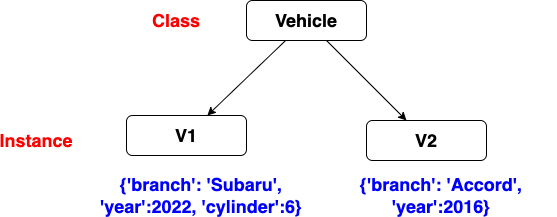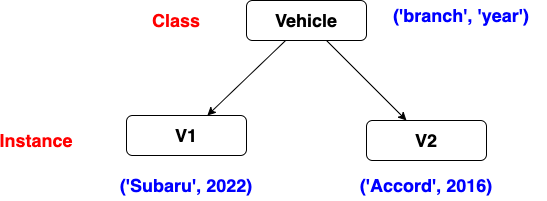By default, Python creates a __dict__ to save the attributes in the instance of class
Be able to create new attributes
class Vehicle(object):
def __init__(self, brand, year):
self._brand = brand
self._year = year
def __str__(self) -> str:
return 'Brand: '+self._brand+' '+'Year: '+str(self._year)
v1 = Vehicle('Subaru', 2022)
v1.cylinder = 6
v2 = Vehicle('Accord', 2016)
print(v1.__dict__) # {'_brand': 'Subaru', '_year': 2022, 'cylinder': 6}
print(v2.__dict__) # {'_brand': 'Accord', '_year': 2016}
More efficient in terms of memory space and speed of access
Prevents the creation of __dict__ and __weakref__ attributes
Any non-string iterable can be used for the __slots__ declaration, such as list, tuple, etc.
Adding a new attribute will raise an AttributeError
class Vehicle(object):
__slots__ = ('brand', 'year')
def __init__(self, brand, year):
self.brand = brand
self.year = year
def __str__(self):
return 'Brand: '+self.brand+' '+'Year: '+str(self.year)
v1 = Vehicle('Subaru', 2022)
v2 = Vehicle('Accord', 2016)
print(v1.brand, v1.year)
print(v2.brand, v2.year)
# v1.cylinder = 6 # error


